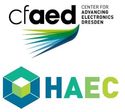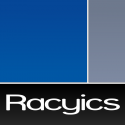9.1 Special Day Session on Designing Autonomous Systems: Embedded Machine Learning
Date: Thursday 22 March 2018
Time: 08:30 - 10:00
Location / Room: Saal 2
Chair:
Ahmed Jerraya, CEA, FR
Autonomous systems will use machine learning techniques to deal with uncertainty and to accomplish intelligent tasks. In the case of cyberphysical systems, machine learning allow to solve complex tasks however it requires novel hardware and software solutions to achieve the required performances. This session introduces the knowledge chain for embedded machine learning. It includes talks on application needs, existing approaches and design tools.
| Time | Label | Presentation Title Authors |
|---|---|---|
| 08:30 | 9.1.1 | AUTOMOTIVE APPLICATION REQUIREMENTS FOR EMBEDDED MACHINE LEARNING Speaker and Author: Dirk Ziegenbein, Robert Bosch GmbH, DE Abstract Machine learning technologies such as neural networks show great potential for enabling automated driving functions in an open world context. Concrete application examples are video-based object detection and classification as well as trajectory planning. However, these technologies can only be released for series production if they can be demonstrated to be sufficiently safe. Since existing functional safety standards such as ISO 26262 do not transfer well to demonstrating the safety of machine learning and in particular regarding functional insufficiencies in open context systems, convincing arguments need to be developed for the safety of automated driving systems based on machine learning technologies. The talk introduces a categorization of machine learning approaches and use-cases in the automotive domain and outlines requirements and approaches for bringing machine learning based systems to the road. |
| 09:00 | 9.1.2 | OVERVIEW OF THE STATE OF THE ART IN EMBEDDED MACHINE LEARNING Speaker: Frédéric Pétrot, TIMA Lab, Univ. Grenoble Alpes, FR Authors: Liliana Andrade, Adrien Prost-Boucle and Frédéric Pétrot, Univ. Grenoble Alpes, CNRS, Grenoble INP, FR Abstract Nowadays, the main challenges in embedded machine learning are related to artificial neural networks. Inspired by the biological neural networks, artificial neural networks are able to solve complex problems, by performing a tremendous amount of relatively simple parallel computations. Embedding such networks in autonomous devices raises the issues of energy efficiency, resource usage and accuracy. The aim of this paper is to provide a comprehensive analysis of the efforts made in recent years to implement artificial neural network architectures suitable for embedded applications. Download Paper (PDF; Only available from the DATE venue WiFi) |
| 09:30 | 9.1.3 | PNEURO: A SCALABLE ENERGY-EFFICIENT PROGRAMMABLE HARDWARE ACCELERATOR FOR NEURAL NETWORKS Speaker: Nicolas Ventroux, CEA LIST, FR Authors: Alexandre Carbon1, Jean-Marc PHILIPPE1, Olivier Bichler1, Renaud Schmit1, David Briand1, Benoit Tain1, Nicolas Ventroux1, Michel Paindavoine2 and Olivier Brousse2 1CEA LIST, FR; 2GlobalSensing Technologies, FR Abstract Artificial intelligence and especially Machine Learning recently gained a lot of interest from the industry. Indeed, new generation of neural networks built with a large number of successive computing layers enables a large amount of new applications and services implemented from smart sensors to data centers. These Deep Neural Networks (DNN) can interpret signals to recognize objects or situations to drive decision processes. However, their integration into embedded systems remains challenging due to their high computing needs. This paper presents PNeuro, a scalable energy-efficient hardware accelerator for the inference phase of DNN processing chains. Simple programmable processing elements architectured in SIMD clusters perform all the operations needed by DNN (convolutions, pooling, non-linear functions, etc.). An FDSOI 28nm prototype shows an energy efficiency of 700GMACS/s/W at 800 MHz. These results open important perspectives regarding the development of smart energy-efficient solutions based on Deep Neural Networks. Download Paper (PDF; Only available from the DATE venue WiFi) |
| 10:00 | End of session Coffee Break in Exhibition Area
On all conference days (Tuesday to Thursday), coffee and tea will be served during the coffee breaks at the below-mentioned times in the exhibition area (Terrace Level of the ICCD). Lunch Breaks (Großer Saal + Saal 1)On all conference days (Tuesday to Thursday), a seated lunch (lunch buffet) will be offered in the rooms "Großer Saal" and "Saal 1" (Saal Level of the ICCD) to fully registered conference delegates only. There will be badge control at the entrance to the lunch break area. Tuesday, March 20, 2018
Wednesday, March 21, 2018
Thursday, March 22, 2018
|











